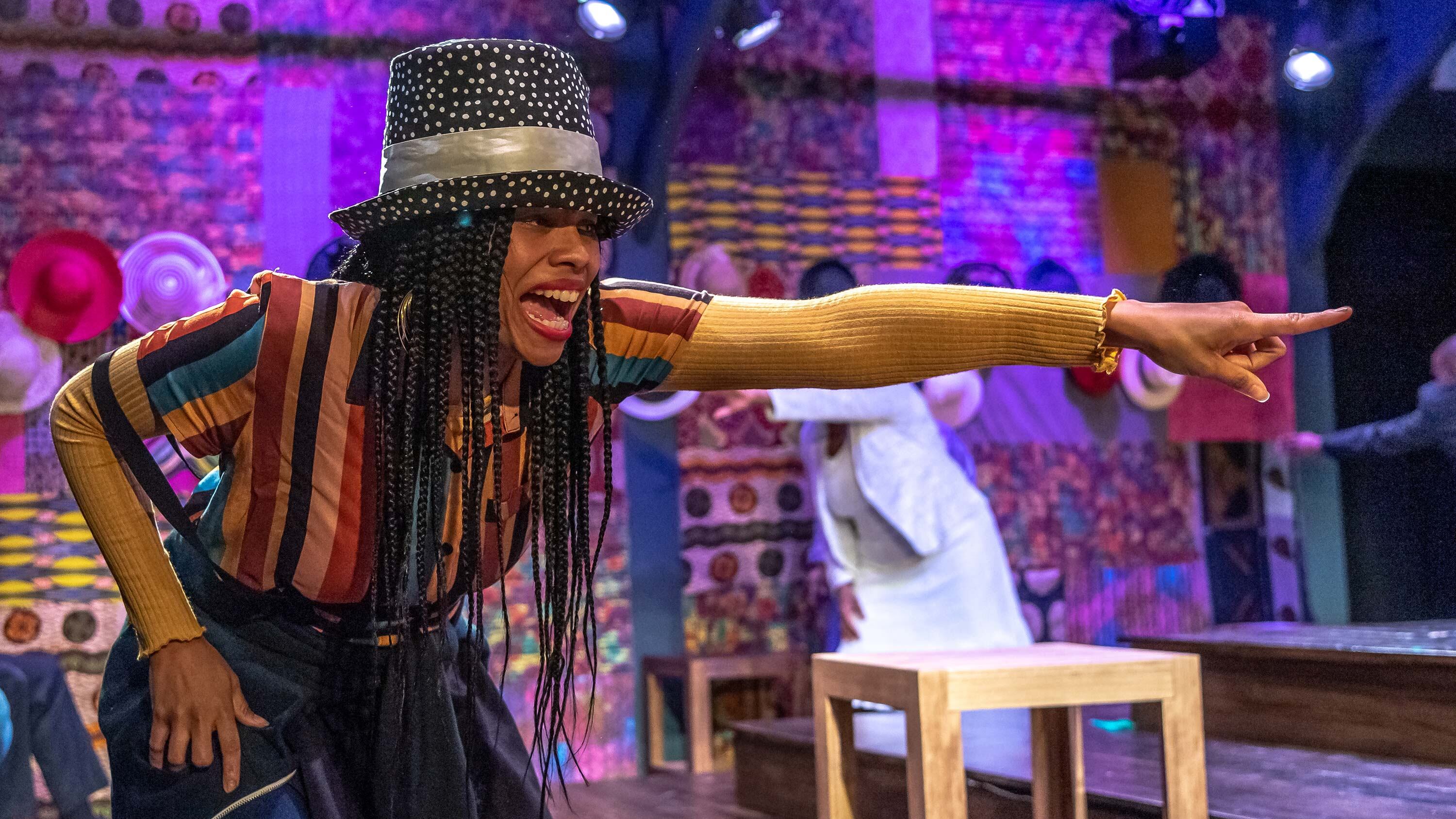Many of the most riveting characters in Portland Playhouse's production of the gospel musical Crowns are hats. They dangle from the ceiling, they come in colors that range from deep azure to maraschino cherry red, and several of them are mesmerizingly multifaceted (at one point, a polka-dotted hat is turned inside out to reveal a bright yellow interior that perfectly matches the dress of the woman who wears it).
Any play that deploys a platoon of eye-catching fashion accessories risks upstaging its cast. That isn't an issue in Crowns, which is about black women who embrace hats not as objects but as expressions of creativity, culture and personality. That idea is the thematic core of the play—which was written by Regina Taylor and is based on Michael Cunningham's photography book Crowns: Portraits of Black Women in Church Hats—and is just one attraction of a production rife with forceful performances and rousing songs.
Crowns stars Kelli Bee as Yolanda, a Brooklyn teenager who is sent to live with her grandmother in South Carolina after her brother is shot and killed. Upon arriving in the Deep South, she is forced not only to adapt to a new home but to a new lifestyle largely structured around church and the intricate rules that govern the buying, wearing and maintaining of hats.
Church hats are a religion unto themselves in Crowns—a form of worship Yolanda initially eyes with skepticism. Yet it doesn't take her long to embrace the power of the perfect hat. When she wears a red baseball cap with a fur tail to her new high school to shock her classmates, Yolanda is, not unlike the women at church, using what she wears to convey her identity.
While Yolanda is the heroine of Crowns, her experiences are just one piece of the narrative mosaic crafted by Taylor and director-choreographer Patdro Harris. The play mostly shuns traditional dialogue scenes, favoring vignettes in which the characters speak directly to the audience.
Some of their tales are steeped in grief—one woman associates a specific hat with her dead husband—while some are equal parts witty and somber. A scene detailing the etiquette of how to hug somebody while wearing a hat—you have to lean your head way, way to the side—is funny, but also a reminder that clothes can be a way of maintaining dignity in a world of systemic oppression. That is why a dislodged hat isn't just an inconvenience. It's a degradation.
Crowns is at its best when it's more concert than play. The cast sings songs like "When the Saints Go Marching In" with the joyous vigor of believers, and the entire production radiates generosity. When actor Andre' Neal shakes hands with audience members in the middle of the play, for instance, he doesn't just blast through the fourth wall. He makes you realize that Crowns is meant to be engaged with rather than watched.
Becoming absorbed in performance isn't always easy, though. Because Crowns frequently focuses on people talking about their lives rather than living them, the play doesn't always feel as immediate as it's meant to be. There are times you wish Yolanda had a more active role in the narrative, since unlike the other characters, she is on an emotional voyage that should take place before our eyes, rather than being explained after the fact.
Yet the power of the music, performances and perspective of Crowns refuses to be diminished. To see the play is to not only be energized and entertained, but to begin to understand what Yolanda is told at the beginning of the story: "Our crowns are bought and paid for. All we have to do is wear them."
SEE IT: Crowns is at Portland Playhouse, 602 NE Prescott St., portlandplayhouse.org. 7:30 pm Wednesday-Saturday, 2 pm Sunday, through April 21. $25-$39.
